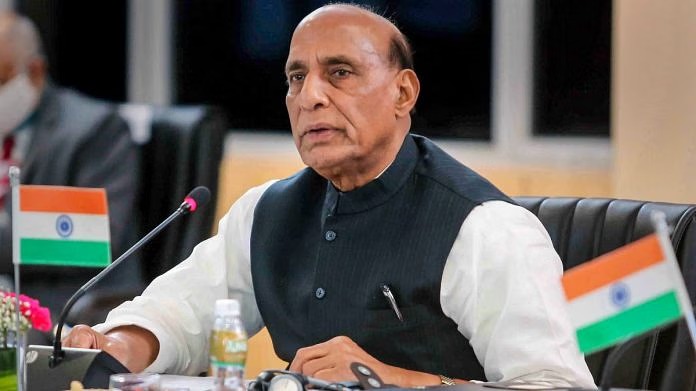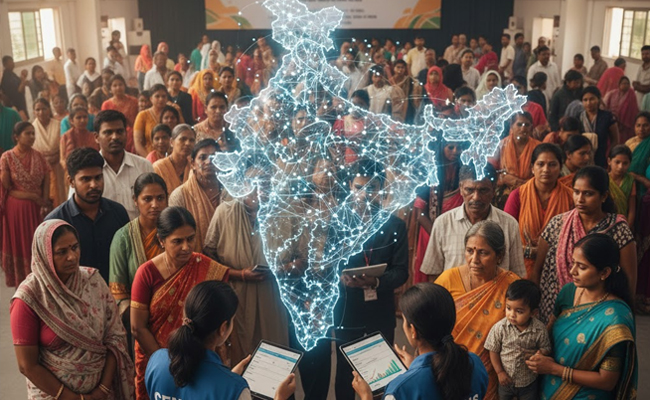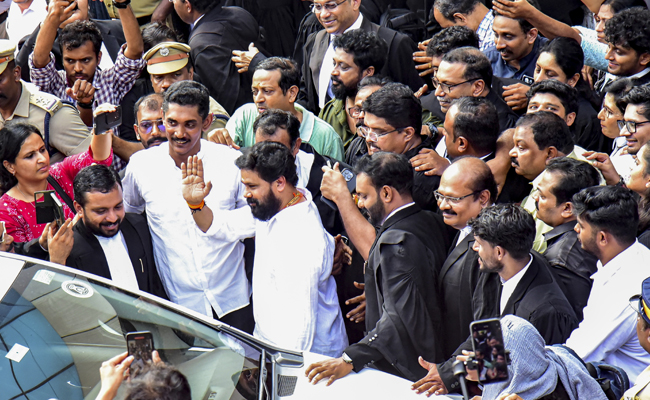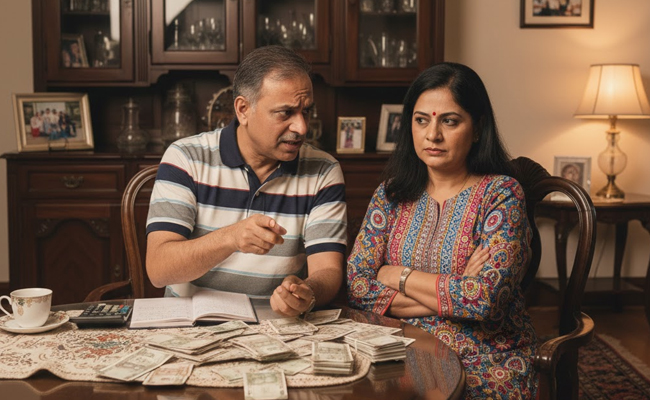Qingdao (PTI): Defence Minister Rajnath Singh on Thursday refused to sign a joint communique of the Shanghai Cooperation Organisation (SCO) following the omission of the Pahalgam terror attack and not explicitly addressing India's concerns over Pakistan-backed cross-border terrorism.
The SCO operates under the framework of consensus, and Singh's refusal to endorse the document resulted in the SCO defence ministers' conclave in this Chinese port city ending without a joint communique, people familiar with the matter said.
The draft communique neither figured the dastardly Pahalgam terror attack nor reflected India's position on cross-border terrorism, they said.
In his address at the conclave, Singh took a swipe at Pakistan for its relentless support to cross-border terrorism and underlined the need to bring "perpetrators, organisers, financiers and sponsors of terrorism to justice".
"Some countries use cross-border terrorism as an instrument of policy and provide shelter to terrorists. There should be no place for such double standards. The SCO should not hesitate to criticise such nations," he said.
The defence minister, who arrived in Qingdao on Wednesday, laid down the broad contours of India's "transitional shift" in its policy against terrorism and urged the SCO member nations to unite in combating and shun "double standards".
Pakistan's Defence Minister Khawaja Asif and Chinese Defence Minister Dong Jun were among those who attended the conclave.
"Peace and prosperity cannot co-exist with terrorism and proliferation of Weapons of Mass Destruction in the hands of non-state actors and terror groups," Singh said.
"Dealing with these challenges requires decisive action. It is imperative that those who sponsor, nurture and utilise terrorism for their narrow and selfish ends must bear the consequences," he said.
Singh also said that the pattern of the Pahalgam terror attack matched with Lashkar-e-Taiba's previous terror attacks in India.
The defence minister said India launched Operation Sindoor in response to the heinous terror attack in Pahalgam, exercising its right to defend against terrorism and pre-empt as well as deter further cross-border attacks.
"During the Pahalgam terror attack, victims were shot after they were profiled on religious identity. The Resistance Front, a proxy of UN-designated terror group Lashkar-e-Taiba (LeT) claimed responsibility for the attack," he said.
"The pattern of the Pahalgam attack matches with LeT's previous terror attacks in India. India’s zero tolerance for terrorism was demonstrated through its actions," he said.
"It includes our right to defend ourselves against terrorism. We have shown that epicentres of terrorism are no longer safe and we will not hesitate to target them," he said.
Singh said SCO members must condemn terrorism unequivocally as he reaffirmed India’s resolve to fight the menace in all its forms.
The defence minister also called for proactive steps to prevent the spread of radicalisation among the youth.
"The joint statement of the Council of SCO Heads of State on 'Countering Radicalisation leading to Terrorism, Separatism and Extremism' issued during India's chairmanship symbolises our shared commitment," he stated.
Singh stressed the world faces an intricate web of challenges that range from transnational terrorism and cyberattacks to hybrid warfare.
These threats, he said, do not respect national boundaries and demand a unified response rooted in transparency, mutual trust, and collaboration.
The defence minister also noted that India has been consistent and steadfast in its policy in support of peace, security and stability in Afghanistan.
Highlighting the SCO's crucial role in the current uncertain geopolitical scenario, Singh said that the member countries contribute around 30 per cent of the global GDP, and about 40 per cent of the world’s population resides in them.
He described the creation of a safe, secure and stable region as a collective stake, which can contribute towards the progress and improvement of people’s lives.
The defence minister voiced India's commitment to increasing its connectivity with Central Asia. "Better connectivity not only enhances mutual trade but also fosters mutual trust."
"However, in these efforts, it is essential to uphold the basic principles of the SCO charter, particularly respecting the sovereignty and territorial integrity of member states."
Let the Truth be known. If you read VB and like VB, please be a VB Supporter and Help us deliver the Truth to one and all.
New Delhi (PTI): The Supreme Court has refused to entertain the bail plea of Mihir Shah, the son of a former Shiv Sena leader, in the 2024 Mumbai BMW hit-and-run case, saying "these boys need to be taught a lesson".
A bench of Justices Dipankar Datta and A G Masih took into account that the accused belonged to an affluent family and his father was associated with the Deputy Chief Minister Eknath Shinde-led faction of the Shiv Sena.
"He parks his Mercedes in the shed, takes out his BMW and crashes it and goes absconding. Let him be inside for some time. These boys need to be taught a lesson," the bench observed on Friday while refusing to entertain the bail plea.
Senior advocate Rebecca John, appearing for Shah, said the high court allowed him to seek bail after the testimony of key witnesses was recorded in the case. However, sensing the mood of the court, she sought permission to withdraw the plea, which was allowed.
Shah (24) was arrested on July 9 last year, two days after he allegedly rammed his BMW car into a two-wheeler in Mumbai's Worli area, killing Kaveri Nakhwa (45) and leaving her husband, Pradeep Nakhwa, injured.
The accused allegedly sped off towards the Bandra-Worli Sea Link after the accident, even as the woman remained on the bonnet of the car and then got entangled in its wheels for a distance of more than 1.5 kilometres.
Shah's driver, Rajrishi Bidawat, who was also present in the car at the time of the accident, was arrested on the day of the alleged accident. Both are in judicial custody.
Shah has challenged the November 21 order of the Bombay High Court that denied him bail in the case after noting that he was heavily inebriated and failed to stop the car even after hitting a scooter and dragging the victim under his vehicle.
The high court had said in the order that the conduct of the accused at the time of the alleged offence and afterwards does not inspire confidence in the court to grant him bail. It had said that Shah had accidentally crashed into the scooter but sped away at high speed, dragging the victim underneath the car.
His further actions indicate a clear intent to escape the consequences and evade arrest, the high court had noted, adding that his exchanging seats with his driver, calling his father and leaving the scene of offence indicate the predilection to tamper with evidence and/or intimidate witnesses.





